
-
 Milan deny Roma top spot in Serie A, Inter beat Verona
Milan deny Roma top spot in Serie A, Inter beat Verona
-
Lens back up to third in Ligue 1 as Lyon held at Brest

-
 NFL-best Colts fall to Steelers, Packers lose to Carolina
NFL-best Colts fall to Steelers, Packers lose to Carolina
-
'Regretting You' wins spooky slow N. American box office

-
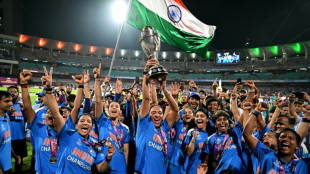 'Just the beginning' as India lift first Women's World Cup
'Just the beginning' as India lift first Women's World Cup
-
Will Still sacked by struggling Southampton

-
 Malinin wins Skate Canada crown with stunning free skate
Malinin wins Skate Canada crown with stunning free skate
-
Barca beat Elche to recover from Clasico loss

-
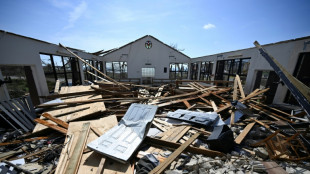 Jamaica deaths at 28 as Caribbean reels from colossal hurricane
Jamaica deaths at 28 as Caribbean reels from colossal hurricane
-
Verma and Sharma power India to first Women's World Cup triumph
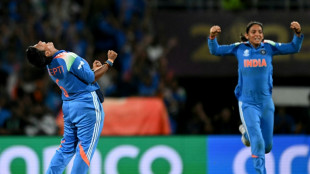
-
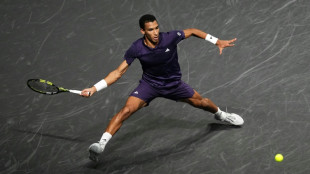 Auger-Aliassime out of Metz Open despite not yet securing ATP Finals spot
Auger-Aliassime out of Metz Open despite not yet securing ATP Finals spot
-
Haaland fires Man City up to second in Premier League
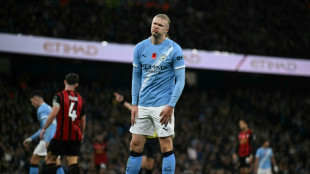
-
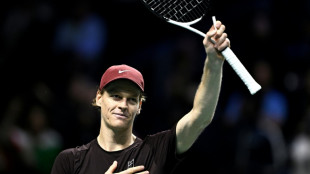 Sinner says staying world number one 'not only in my hands'
Sinner says staying world number one 'not only in my hands'
-
Ready for it? Swifties swarm German museum to see Ophelia painting

-
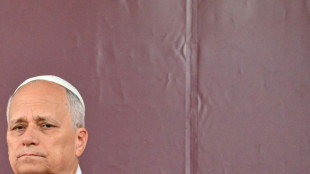 Pope denounces violence in Sudan, renews call for ceasefire
Pope denounces violence in Sudan, renews call for ceasefire
-
Kipruto, Obiri seal Kenyan double at New York Marathon
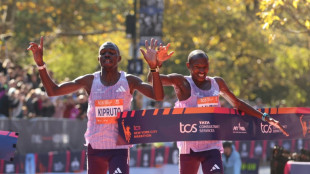
-
 OPEC+ further hikes oil output
OPEC+ further hikes oil output
-
Sinner returns to world number one with Paris Masters win

-
 Sinner wins Paris Masters, reclaims world No. 1 ranking
Sinner wins Paris Masters, reclaims world No. 1 ranking
-
Nuno celebrates first win as West Ham boss

-
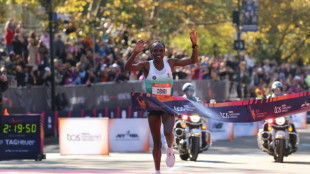 Obiri powers to New York Marathon win
Obiri powers to New York Marathon win
-
Two Louvre heist suspects a couple with children: prosecutor
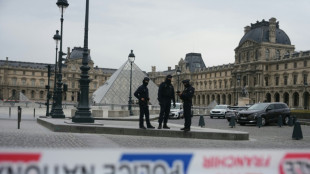
-
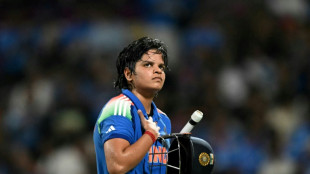 Verma, Sharma help India post 298-7 in Women's World Cup final
Verma, Sharma help India post 298-7 in Women's World Cup final
-
Inter snapping at Napoli's heels, Roma poised to pounce
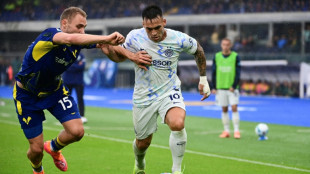
-
 India space agency launches its heaviest satellite
India space agency launches its heaviest satellite
-
Wolves sack Pereira after winless Premier League start
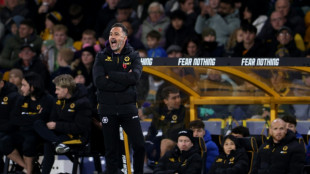
-
 Debutants Berkane among CAF Champions League top seeds
Debutants Berkane among CAF Champions League top seeds
-
Sundar steers India to five-wicket win over Australia in 3rd T20
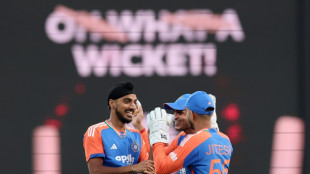
-
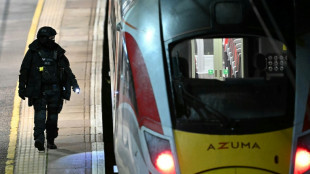 What we know about the UK train stabbings
What we know about the UK train stabbings
-
Jonathan Milan wins wet Tour de France Singapore Criterium
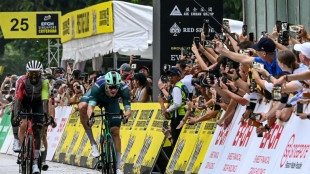
-
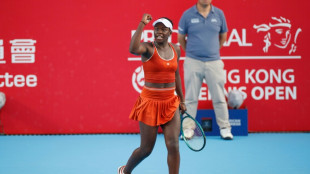 Canadian teen Mboko wins Hong Kong Open for second WTA title
Canadian teen Mboko wins Hong Kong Open for second WTA title
-
Two children among dead in Russian blitz on Ukraine
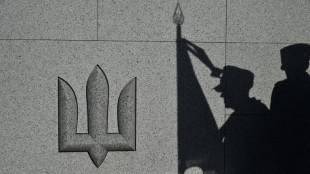
-
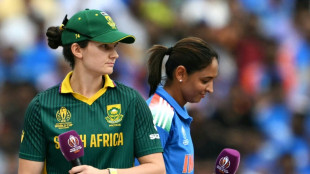 South Africa opt to bowl against India in Women's World Cup final
South Africa opt to bowl against India in Women's World Cup final
-
Dominant McKibbin wins Hong Kong Open to seal Masters spot
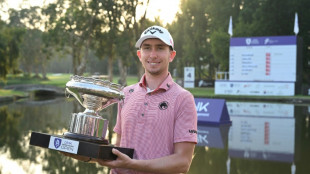
-
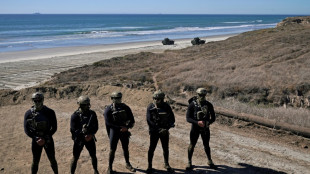 US Navy veterans battle PTSD with psychedelics
US Navy veterans battle PTSD with psychedelics
-
'Unheard of': Dodgers in awe of iron man Yamamoto
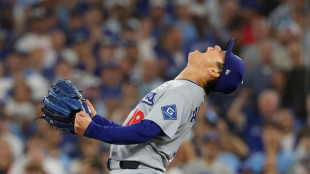
-
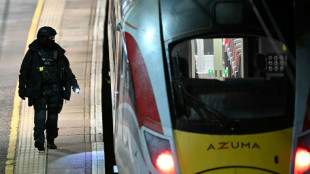 UK police probe mass train stabbing that wounded 10
UK police probe mass train stabbing that wounded 10
-
'It's hard' - Jays manager Schneider rues missed chances in World Series defeat
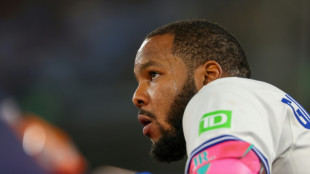
-
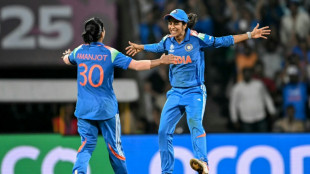 Women's cricket set for new champion as India, South Africa clash
Women's cricket set for new champion as India, South Africa clash
-
Messi scores but Miami lose as Nashville level MLS Cup playoff series
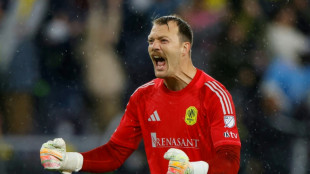
-
 Dodgers clinch back-to-back World Series as Blue Jays downed in thriller
Dodgers clinch back-to-back World Series as Blue Jays downed in thriller
-
Vietnam flood death toll rises to 35: disaster agency
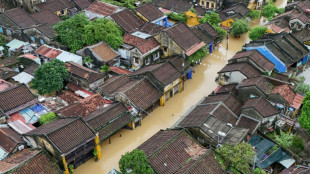
-
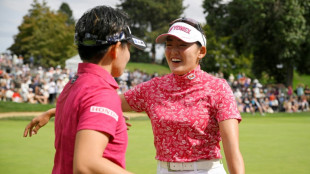 History-making Japan golf twins push each other to greater heights
History-making Japan golf twins push each other to greater heights
-
Death becomes a growing business in ageing, lonely South Korea
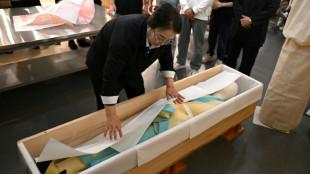
-
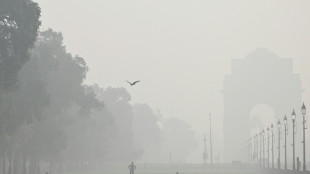 India's cloud seeding trials 'costly spectacle'
India's cloud seeding trials 'costly spectacle'
-
Chiba wins women's title, Malinin leads at Skate Canada
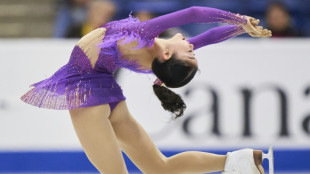
-
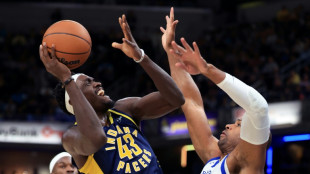 Siakam sparks injury-hit Pacers to season's first NBA win
Siakam sparks injury-hit Pacers to season's first NBA win
-
Denmark's fabled restaurant noma sells products to amateur cooks

-
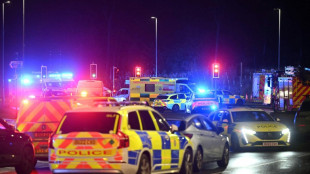 UK train stabbing wounds 10, two suspects arrested
UK train stabbing wounds 10, two suspects arrested
-
Nashville top Messi's Miami 2-1 to level MLS Cup playoff series
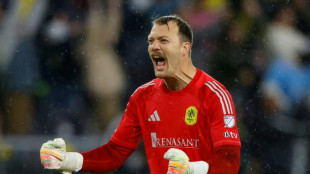

US doctors reflect on exhaustion, trauma of one million Covid deaths
Joseph Varon -- who is chief of intensive care at United Memorial, a small hospital that mainly treats minority patients in Houston -- made headlines when a photo of him hugging an elderly Covid patient during Thanksgiving in 2020 went viral.
While that man went on to recover, it was those that did not make it that haunt Varon.
"As a doctor, just in the last two years I have signed more death certificates than ever," he said.
As the United States marks the grim milestone of one million Covid deaths, health care workers who have served on the frontlines continue to shoulder a heavy burden, even as the rest of society has moved on.
Many are exhausted, traumatized, and still afraid of crowded settings.
Varon remembers well his first death, that of an immigrant working in a hotel.
"He came into the hospital, and literally within a week he died, at 34 years of age without any pre-existing medical conditions," he said.
From then, until the last big wave at the start of this year, there was little respite.
Varon recalls nurses crying as they faced never-ending ICU admissions, beds in hallways, one intubation after another.
He also remembers his wife asking him to change his clothes in the garage before entering their home, after 20-hour shifts.
The Thanksgiving photograph, said Varon, "became a symbol that we doctors also have feelings."
At that moment, he didn't care about protecting himself, but wanted to give comfort to a man who didn't know if he'd make it and couldn't see his wife, since visits were not permitted.
The demands of work also extracted a personal toll. Varon feels far older than his 59 years, hasn't gone on vacation since the start of the pandemic, and was phoning in prescriptions on the day of his daughter's wedding.
He now sees "light at the end of the tunnel" and isn't seeing many Covid patients -- though he is seeing patients with post-Covid disorders including heart and lung issues.
- Stressed by crowds -
Early on, the disease was a total mystery: how it was transmitted, who was most susceptible, how to treat it.
Health workers feared bringing it home to their loved ones, or dying themselves.
That fear was heightened for Daniel Brenner, an emergency physician interviewed by AFP at the start of the pandemic, when doctors were scrambling to find the right strategies to deal with severe lung injury caused by serious cases of Covid.
Brenner's wife is also an emergency doctor -- and until the vaccine came along, they lived in dread of leaving behind their two young children, now aged five and three.
"The thought of dying because of what you do and leaving your children as orphans is terrifying," the 38-year-old said.
Now working in Indianapolis, Brenner says he's found it hard to re-adjust to crowds, despite far lower levels of Covid in the community, and hardly does things he used to take for granted, like eating inside restaurants.
"It's unfortunate because I'm trying to make sure that I don't inflict my trauma on my kids," he said, becoming emotional.
"I want to make sure that they have enriching fulfilling things in their lives, but it's really hard when I'm trying to figure out what's safe."
The vaccine was a major turning point, says Brenner, greatly reducing the risk of severe disease and lifting a weight off his shoulders.
But there are still vaccine holdouts getting sick.
"I have a mixture of sadness and frustration because it's preventable and I see people who are spreading misinformation, and doing themselves and their neighbors and their family a disservice," he said.
On a more hopeful note, Brenner makes a point of talking to all high-risk patients he sees about Covid vaccinations, and finds that the hesitant are generally amenable once he addresses their fears.
"The vast majority of my patients, after I have that conversation, ask me where to get vaccinated," he says.
Brenner directs them to a walkup clinic within the same hospital.
J.Horn--BTB




